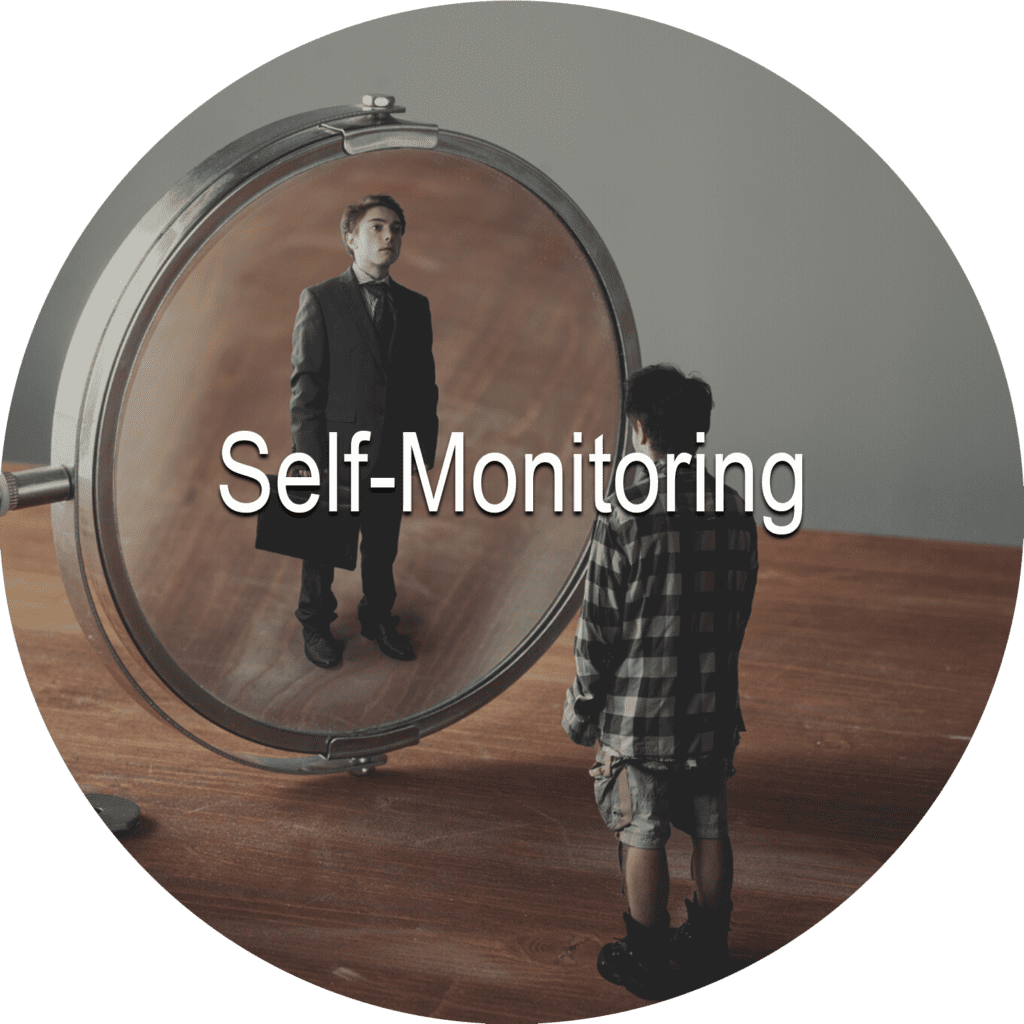What is self-monitoring?
Self-monitoring is like being your own coach or referee. Here’s a simplified explanation:
- Observing Your Actions: This skill involves paying attention to your own actions. Just like a coach watches a player’s performance, self-monitoring means observing what you do, how you do it, and when you do it.
- Checking Your Thoughts and Feelings: Self-monitoring isn’t just about actions. It also involves checking in with your thoughts and feelings. It’s about noticing what you’re thinking and feeling at different times and in different situations.
- Adjusting Based on Observations: Just like a coach might suggest changes based on a player’s performance, self-monitoring involves making adjustments based on what you observe. If you notice that a certain behavior isn’t serving you well, for example, you might decide to change that behavior.
- Aiming for Improvement: The goal of self-monitoring is to improve. By paying attention to your actions, thoughts, and feelings, you can make changes that help you reach your goals and become the person you want to be.
- Maintaining What is Working: When behaviors, tasks, and strategies are working, you can continue to use these for future obstacles and goals
How does self-monitoring help with achieving success?
Self-monitoring plays a significant role in achieving success in various areas of life. Here’s how:
- Enhances Self-Awareness: Self-monitoring helps you become more aware of your thoughts, feelings, and behaviors. This increased self-awareness can lead to a better understanding of yourself, including your strengths, weaknesses, habits, and patterns.
- Improves Behavior: By monitoring your behavior, you can identify actions that are beneficial or detrimental to your goals. This can help you make necessary adjustments to your behavior to align with your objectives.
- Boosts Performance: Self-monitoring can lead to improved performance in various areas. By keeping track of your progress and making adjustments along the way, you can enhance your skills and achieve better results.
- Promotes Personal Growth: The process of self-monitoring encourages self-reflection and personal growth. It helps you understand your actions and their consequences, fostering personal development and self-improvement.
- Facilitates Goal Achievement: Self-monitoring is a key component of goal achievement. By monitoring your progress towards your goals, you can stay on track, make necessary adjustments, and ultimately achieve your objectives.




